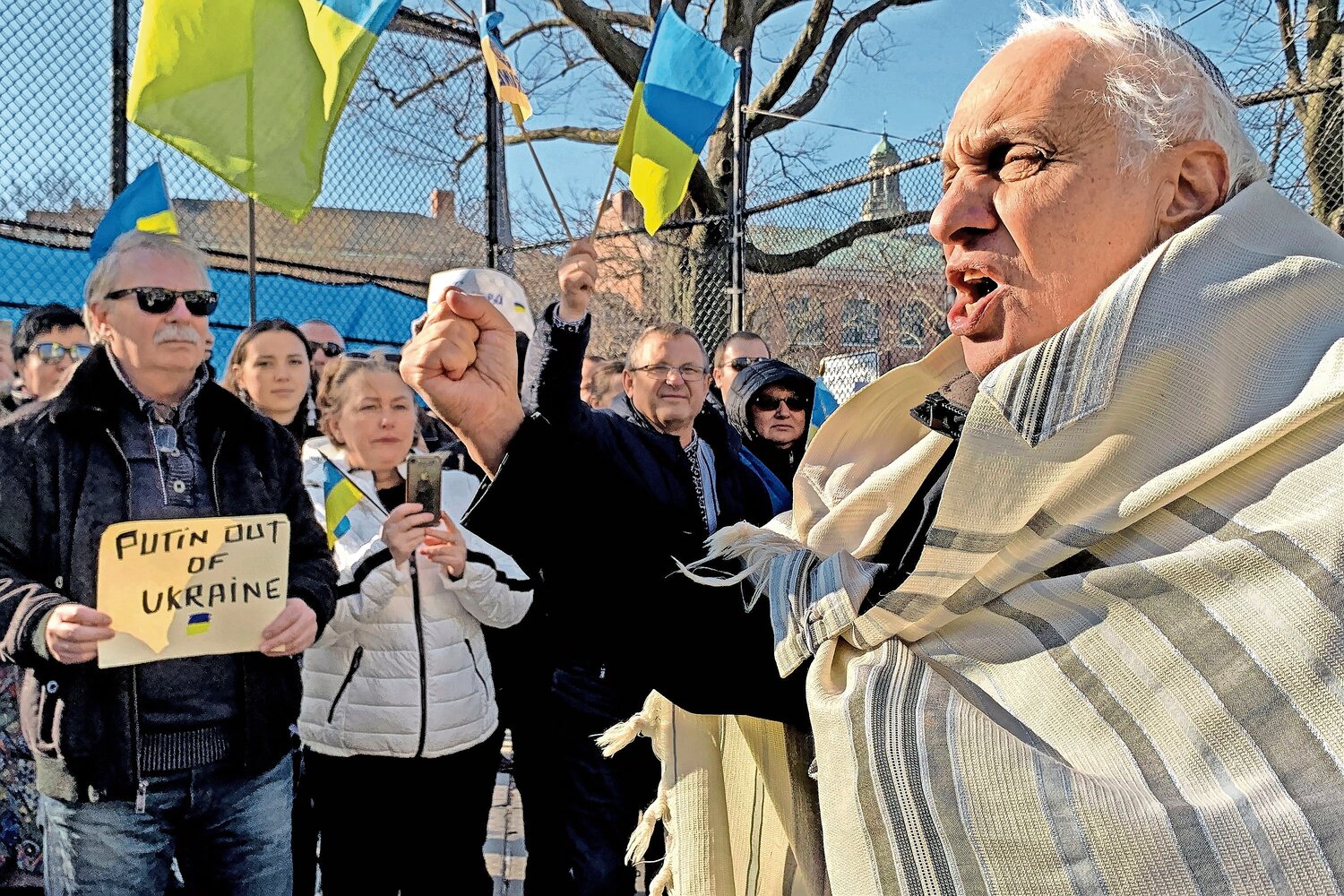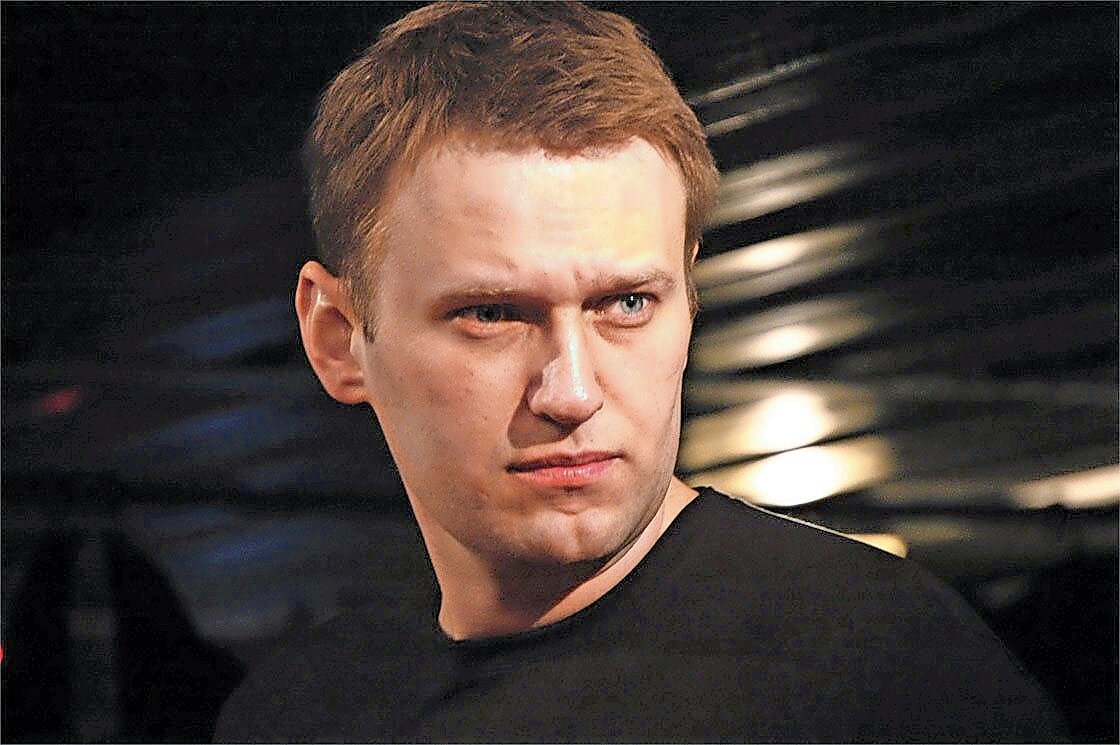Navalny death recalls fight for Soviet Jewry
The death in a Siberian prison of Russian dissident Alexei Navalny could be the spark that burns down today’s iron curtain, Rabbi Avi Weiss told The Jewish Star.
Rabbi Weiss, retired spiritual leader of the Hebrew Institute of Riverdale, was a firebrand activist in the decades-long movement to free Soviet Jews, starting in the mid-1960s.
Navalny, an outspoken critic of Russian President Vladimir Putin, was taken to a Berlin hospital after falling ill during a flight to Moscow in 2020. German laboratory technicians determined he was poisoned with a Novichok nerve agent, Putin’s signature poison.
After recovering, he returned to Russia, knowing full well that Putin would imprison him the moment his plane hit the tarmac. He died on Feb. 16 at age 47 while serving a 19-year sentence in corrective colony FKU IK-3.
Rabbi Weiss hopes Navalny will leave a mark on today’s Russian civil rights advocates similar to that left by the Soviety Jewry movement.
“It’s going to be a test,” he said. “They could be inspired by individual figures, but movements must transcend whoever that figure may be.”
Weiss detailed his own encounters with authorities in the Union of Soviet Socialist Republics in his 2015 book, “Open Up the Iron Door: Memoirs of a Soviet Jewry Activist.” He was a visible figure in the fight to free Soviet Jews, who were not allowed to leave the USSR.
The Student Struggle for Soviet Jewry staged demonstrations to pressure the USSR to give Soviet Jews human rights.
“Soviet Jewry deserves a legitimate place in history in bringing about the fall of communism,” Rabbi Weiss told The Jewish Star. “When they stood up and said we’re not going to bend, it sent the message to many others who were not Jewish, who were afraid to stand up to the Soviet dictatorship.”
“This is an activist who understands that the cause I’m standing up for is more important than who I am,” Rabbi Weiss said. For this reason, “in America, we have to stand with Navalny. If we believe in universal values, we have to stand up for them above all else. We need to stand with Ukraine. With Israel. Even if it isn’t a popular thing to do, it is the right thing to do.”
When Rabbi Weiss campaigned for Soviet Jews, Natan Sharansky epitomized their struggle for civil rights. Releasing him from his arctic prison was a milestone toward unwinding the Soviet system. Sharansky described those years in his 1998 memoir, “Fear No Evil.”
Half a century later, imprisoned in the same work camp, Alexei Navalny read a copy and the two corresponded.
In his first letter, in April 2023, Navalny wrote, “I was amused by the fact that neither the essence of the system nor the pattern of its acts has changed. … All this guarantees an equally inevitable collapse. Like the one we witnessed.”
Sharansky replied, “Dear esteemed Alexei. I received a shock getting a letter from you… [in my] Alma Mater. … [Your] true concern is the fate of [your] people — and [you are] telling them: ‘I am not afraid and you should not be afraid either. … In prison I discovered that in addition to the law of universal gravitation of particles there is also a law of universal gravitation of souls. By remaining a free person in prison, you, Aleksei, influence the souls of millions of people worldwide.”
Rabbi Weiss describes them both as universalists.
“Governments have all kinds of commitments, that is why I never wanted to be part of the establishment,” Rabbi Weiss explained. “When you are operating from the outside, you don’t have those limitations.”
Israel faced such limitations when dealing with the USSR, he said, and as the Jewish state sought to maintain solid relations with the USSR, it was unable to sufficiently support Russian Jewry.
“When you are operating in the government, there are times that you can’t do what you know is right because it conflicts with the voters” or competing national interests. That is why “Israel has not supported Ukraine,” Rabbi Weiss said. “This is why we need activists.”
Navalny left a message to the Russian people in the event of his death in the documentary “Navalny.”
“I’ve got something very obvious to tell you. You’re not allowed to give up. If they decide to kill me, it means we are incredibly strong. We need to utilize this power. To not give up. … We don’t realize how strong we actually are.
“The only thing necessary for evil to triumph is for good people to do nothing. So don’t be inactive.”
As the clip ends and the music builds, Navalny breaks into laughter.
Yulia Navalnaya has vowed to continue her late husband’s work.
Rabbi Weiss encourages people to stand up for their beliefs. He acknowledges that “it’s not easy. Fear is an emotion, it’s a feeling — and feelings are not right, they’re not wrong, they just are. No one should be condemned for having feelings. There’s nothing wrong with being afraid.
“The question is, if I know the cause is right, even if I am afraid to become involved, can I act contrary to my feelings and still stand up for the truth?”

 51.0°,
Overcast
51.0°,
Overcast 







